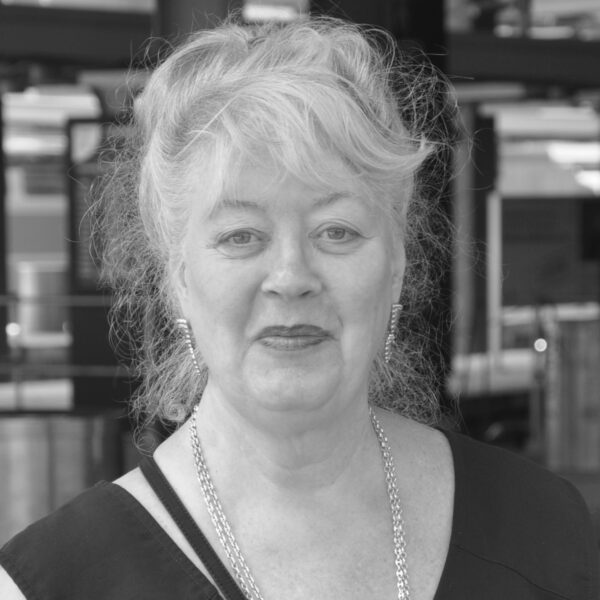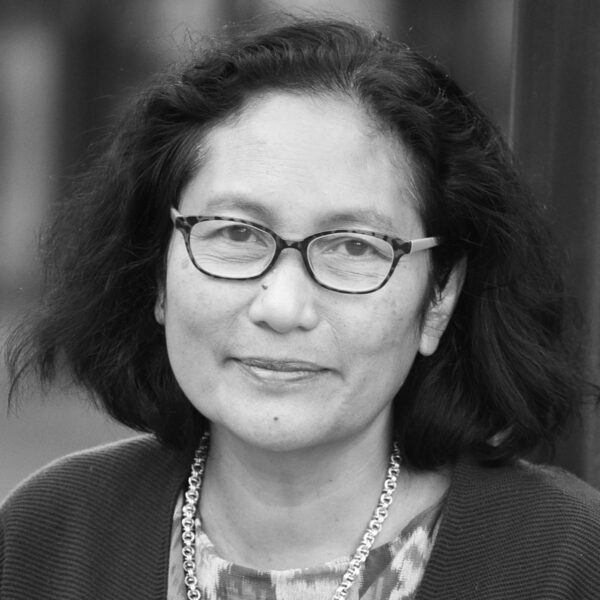Event
Equity and Social Justice in Design and Planning of Public Infrastructure

-
COST
Free for BSA and BosNOMA members, $20 nonmembers
-
TYPE
CEs
-
AUDIENCE
Civic
-
ACCREDITATIONS
1.5 LU HSW AIA credits available
This event is part of Intersections: Equity, Environment + the City, a multi-day symposium November 6–13, 2021 brought to you by BosNOMA and Women in Design on intersectional and participatory design processes in Boston. View the full symposium schedule here.
About the Session
Structural injustices and systemic inequities start at the policy level and pervade all aspects of the built environment through recurrent design. Planning, urban design, and development policies create our built environments, affect our natural world, shape our communities, and impact our collective health.
Systemic inequities, racism, and climate change also undermine our public health. Marginalized communities are most vulnerable to toxic exposures, pollution, sea level rise, flooding, urban heat, and other consequences of climate change. Design professionals can redress the interrelationship of community, ecology, and health to provide opportunities for regenerative design to take root and flourish.
To address racial injustice in the profession, designers need to acknowledge the role we play in perpetuating systems of oppression and, in doing so, commit ourselves to designing and building for equity. We must examine our responsibility to create lasting change. Our actions and inactions within systems, firms, and professional organizations contribute to these systemic inequities that continue to exist.
Speakers
Jessica Kenny AIA
Director of Environmental Services, MassDOT
Jessica Kenny was recently appointed to be the Director of Environmental Services of the Massachusetts Department of Transportation. This appointment is the first step in a reorganization of MassDOT’s Environmental Services to include merging with the Environmental Compliance Group. The merging and collaboration of these two groups will provide growth opportunities for staff to gain experience in multiple environmental areas and transition the Highway Division into the next challenges of climate resiliency, stormwater enhancements and environmental compliance activities.
Jessica has been with the Highway Division for over 17
years initially gaining experience in Environmental Permitting working
alongside staff in MEPA/NEPA and the Wetlands Groups and then
transitioning to Construction to oversee Environmental Compliance. She
has developed extensive experience in Design/Build and Design/Bid/Build
Environmental permitting, implementation and post-construction
compliance throughout her career at MassDOT. She has been closely
involved with several high profile and complex projects including the
following: I-95 Whittier Bridge Replacement, Statewide All Electronic
Tolling/Toll Demolition, Longfellow Bridge Rehabilitation, Research
& Material Laboratory Construction, I-93 Methuen Rotary/Interchange
Improvements, and Fore River Bridge Replacement. Jessica is a graduate
of Massachusetts Maritime Academy with a Bachelor of Science degree in
Marine Safety & Environmental Protection.
Margaret Lackner
Deputy Chief for QA/QC, MBTA
Marggie Lackner is the MBTA’s Deputy Chief for Quality Assurance and Quality Control for both Design and Construction for the MBTA’s Capital Program. She started at the MBTA as the Deputy Director of Design in 2002 and was promoted to Director of Design and Architecture in 2011. Previously, she served as Architect and Architecture Lead for the Central Artery Tunnel Project Charles River Crossing and was responsible for the visual aspects of the highway, public art, and building and urban design.
As infrastructure affects our public lives as much as buildings affect our personal and professional lives, Marggie works to deliver quality, beauty, justice and durability. She creates practical design solutions for a myriad of projects that enhance the MBTA customer’s experience, including accessibility for all, while supporting the goal of longer and more cost-efficient service lives for MBTA assets. She has improved design standards, signage, and station designs by engaging her unique design skills, fueled by her passion for serving user needs and humanizing the public realm.
Marggie Lackner is also one of the recipients of the 2021 Women in Design Award of Excellence. Learn more here.
Etty Padmodipoetro
Founding Principal, Urban Idea Lab
Etty Padmodipoetro graduated from the University of Minnesota in Urban Design and Architecture. She was a Loeb Fellow at Harvard University where she studied infrastructure mega-projects and Transit Oriented Developments (TOD). She was the 2020 Chair of the AIA Housing and Community Development Knowledge Community and is actively working with the Strategic Council to develop AIA Housing Policy. Etty founded Urban Idea Lab in 2013 – focusing on Infrastructure, TOD, Urban Design, Planning, Sustainability, Community Engagement, and Public Arts. As an architect and urban designer, she has extensive experience in the development of infrastructure architecture, public transport, bridges and accessibility. She works closely with community groups, stakeholders, and in multi-disciplinary teams to develop consensus-based solutions. She believes that the key to success is establishing a strong collaboration with project stakeholders from the inception.
Etty focuses her work on the importance of integrating inclusive public spaces in every aspect of infrastructure design. She strives to find the balance between large scale transportation infrastructure and its users’ needs. A significant part of her work focuses on accessibility in its broadest sense - recognizing the many forms of physical, visual and cognitive mobility limitations that must be addressed for projects to be truly inclusive.
Moderator: Pallavi Mande
Climate Resilience and Sustainable Design Lead, Urban Idea Lab
Pallavi Mande, Founding Director of Tamraparni.org has been involved with water centric environmental restoration work in the Boston metropolitan area for the last two decades. In addition to serving as a Climate Resilience and Sustainable Design Lead at Urban Idea Lab, she provides pro-bono design services to environmental justice populations that are most vulnerable to climate change.
Pallavi formulated the Blue Cities Initiative at CRWA in 2008 and grew it into a major program that includes planning, design and implementation of green infrastructure projects within the Charles River watershed and beyond. As CRWA’s Director of Watershed Resilience, she was also deeply involved in advocacy and outreach for ecological restoration and climate justice across the watershed, through engaging a variety of stakeholders ranging from state and municipal agencies, institutions and resident communities at large.
Pallavi received her bachelor’s degree in Architecture in India, a Master’s in Philosophy in Environment and Development at Cambridge University (U.K) and a Master’s in Architecture and Urban Design at Washington University. In 2016 she was selected to be a Loeb fellow at the Harvard GSD. Pallavi frequently serves as a design critic, juror and guest lecturer at the GSD, MIT DUSP, and NU School of Architecture.

Margaret Lackner

Jessica Kenny

Etty Padmodipoetro

Pallavi Mande